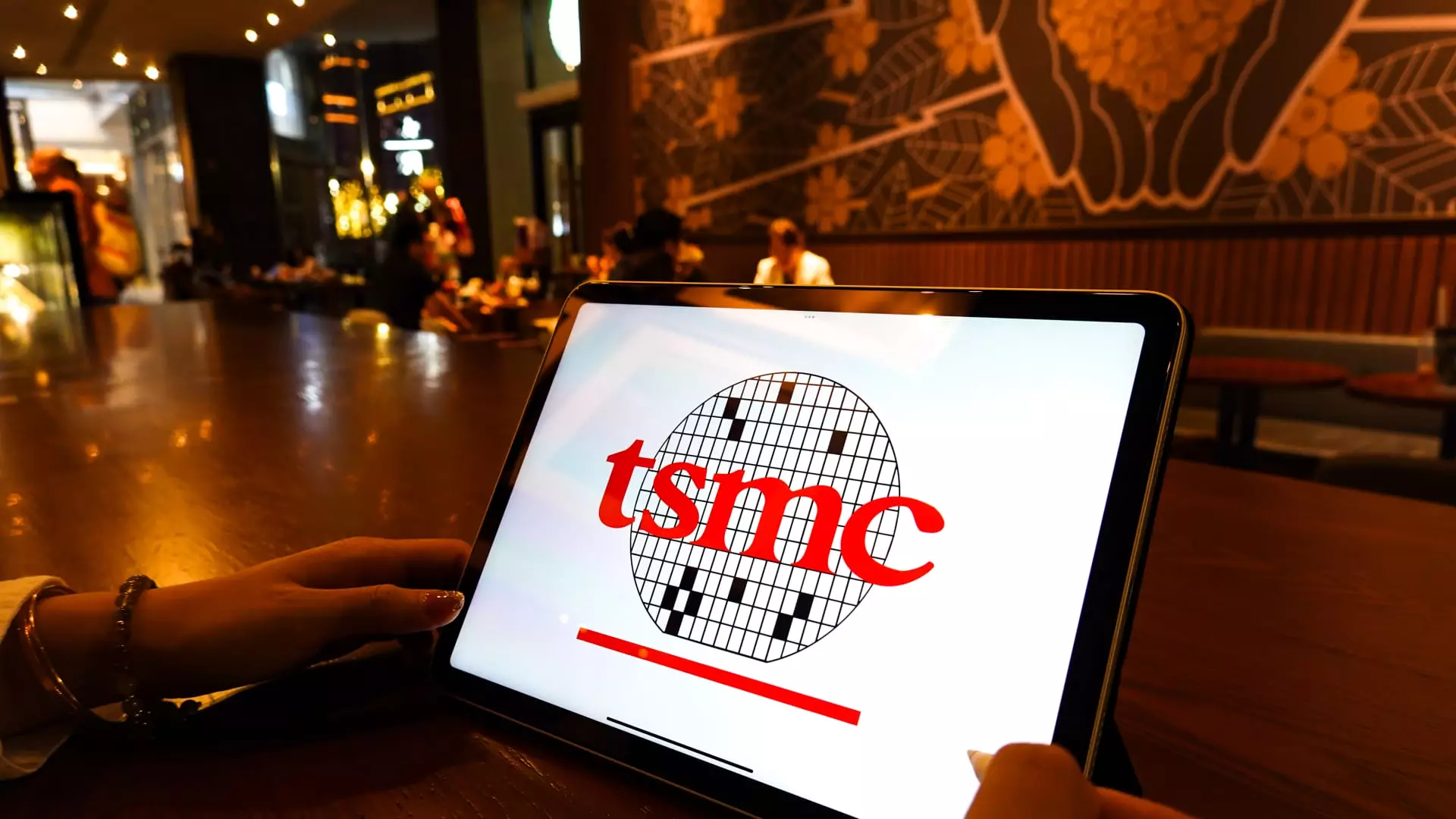On Thursday, the Taiwan Semiconductor Manufacturing Company (TSMC) announced remarkable financial results for the third quarter, with net profits skyrocketing by an impressive 54%. This surge can be attributed to the burgeoning demand for semiconductors, primarily fueled by advancements in artificial intelligence (AI) technology. TSMC’s net income reached an astonishing 325.3 billion Taiwanese dollars (approximately $10.1 billion), exceeding market forecasts and showcasing the company’s robust market position. In premarket trading, TSMC’s U.S.-listed shares responded positively, reflecting a 6.62% rise—a testament to investor confidence in the company’s future prospects.
TSMC stands as the world’s largest advanced semiconductor manufacturer, serving a high-profile clientele that includes industry titans like Apple and Nvidia. The company reported a total net revenue of $23.5 billion for the quarter, marking a significant 36% increase compared to the same period last year. The financial prowess of TSMC is further exemplified by its gross profit margin, which rose to 57.8%, up from 54.3% year-over-year. Such feats underscore TSMC’s effective operational strategies and its pivotal role in the semiconductor landscape.
During a recent earnings call, TSMC’s Chief Financial Officer, Wendell Huang, projected a strong outlook for the final quarter of the year. The anticipated revenue could fall between $26.1 billion and $26.9 billion, translating to a sequential growth of 13% and a staggering year-on-year growth of approximately 35%. This optimistic forecast highlights TSMC’s ability to capitalize on the escalating demand for chips that are crucial for various applications, especially in smartphones and AI technologies, where the company’s cutting-edge 3nm and 5nm nodes have become industry benchmarks.
Chairman and CEO C.C. Wei confidently asserted that the demand for AI technologies is genuine and transformative for the company. He emphasized TSMC’s unique position in the market, noting that they have established relationships with numerous clientele, including major AI innovators and hyperscalers creating proprietary chips. The acknowledgment of strong partnerships not only reinforces TSMC’s significance in the semiconductor sector but also establishes the company’s reputation as a catalyst for technological advancement.
The stock performance of TSMC has been nothing short of remarkable, with its shares surging nearly 80% year-to-date, substantially surpassing the broader market gains of 28.57%. This growth trajectory can be attributed to both TSMC’s strong financial performance and its strategic investments aimed at expanding production capabilities. In their earnings call, TSMC confirmed an expected increase in capital expenditure to slightly above $30 billion for the year, signifying the company’s commitment to scaling its operations to meet growing global chip demand.
In a broader context, TSMC is not solely focused on domestic growth. The company has embarked on significant international investments amounting to $65 billion, primarily targeting three new chip manufacturing plants in Arizona, aimed at fulfilling rising U.S. demand. Additionally, TSMC has established its first factory in Japan, reinforcing its global footprint and production capacity.
Despite the positive outlook from TSMC, the semiconductor industry is not without its challenges. Just days before TSMC’s earnings announcement, ASML, a Dutch supplier of lithography equipment to TSMC, issued a disappointing sales forecast, which led to a decline in their stock prices. This reflects an undercurrent of caution in the market regarding the longevity and sustainability of the AI-induced surge in demand for semiconductors. Market players are increasingly scrutinizing the prolonged viability of the AI boom and whether the extensive investments being funneled into the technology sector will yield favorable returns.
Furthermore, prominent figures in the industry, like Young Liu, the CEO of Foxconn, have pointed out that the ongoing AI frenzy might still have a considerable way to go before it reaches maturity. Such perspectives add an element of uncertainty to the industry, as varying rates of advancement in technology could influence future investments and demand.
TSMC’s impressive financial results and its bullish projections indicate a strong current position within the semiconductor field, bolstered by the surging demand for AI technologies. However, as the industry evolves, it will be imperative for stakeholders to remain vigilant and adaptable to both opportunities and challenges that lie ahead.

